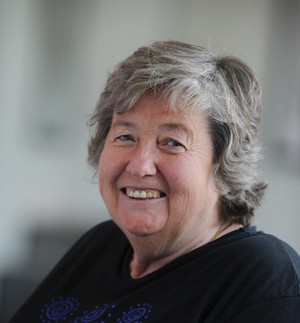E-health uses electronic processes and communications to enhance healthcare. The aim is to improve patient care, reduce costs, and empower patients to work towards maintaining their own well-being.
To work e-health needs a lot of data about patients. This health data is also crucial to discovering new drugs and improving patient care. Using specialised devices and telemedicine, a wide range of conditions can be monitored at home. Smartphones can process the information and transmit it to healthcare professionals and/or patients. Using e-health, conditions can be monitored continuously providing real-time monitoring of the condition and its treatment.
For the full potential of e-health to be realised electronic health records need to be linked to other information, like images and text. This combined knowledge then needs to be distributed through a cloud service, so that a patient or doctor can see it immediately. Genetic profile and socio-economic factors can also be included to provide improved diagnoses and health predictions. In addition, approaches such as data mining offer exciting research opportunities. Data mining can help identify more effective treatments, improve drug safety, reduce risk, and better public health systems. E-health can improve how diseases develop and disabilities are spread throughout different populations.
Assistive technology can be provided through an intelligent healthcare device. These devices include a dispenser that might text you to remind you to take your pills — especially useful for patients with memory problems. If the patient does not take their medication after multiple reminders, the system could automatically alert a family member or carer. This could prove a lifesaver for patients with depression or dementia. Through relatively simple technology, patients can take care of themselves at home, reducing the burden on hospitals.
At the University of Ulster we have been researching e-health solutions for decades. It ranges from cloud computer systems for ‘big’ healthcare data to home-sensor based reminder systems for Alzheimer’s patients. We have also worked with designers to embed sensors into clothing designed to help older people become more active outdoors. Our focus has been to developed new algorithms (computer programmes that do a specific task) to analyse data collected by a system of devices. What we learn from these algorithms can be used to adapt the environment to take better care of the patient. Such feedback is essential to make the technology seamlessly integrate with a patient’s needs and preferences. Feedback could either be through an audio prompt or transmit an alert to a carer indicating that assistance is required. The research opportunities are endless.
In Malta, the University of Malta is well placed to leverage research opportunities for local solutions. Key components are already in place in several faculties, where the focus on Communications and Intelligent Computer Systems is particularly relevant to Malta, with a number of ongoing e-health research projects.
E-health provides business opportunities for the private sector. It can take academic research and use it to develop new technologies, deploy it, or manage it. For example in Northern Ireland there has been a huge interest in developing these business opportunities by creating awareness among investors. This investment can bring improved health and well-being, while supporting economic development. Such developments could be relevant to Malta which is similar to Northern Ireland in having a geographically peripheral location within Europe, an integrated healthcare system, and a technically skilled workforce. Due to its objective of establishing a regional hub for a knowledge-based and ICT-enabled economy, SmartCity Malta could be well placed to bring together the research expertise of the University of Malta and businesses. Together they could advance Malta’s healthcare for everyone.
Prof. Sally McClean is a Professor of Mathematics at the University of Ulster (Belfast, Northern Ireland), and participated in the 2013, Workshop in Information and Communication Technology (WICT) organised by the Faculty of ICT at the University of Malta.





Comments are closed for this article!